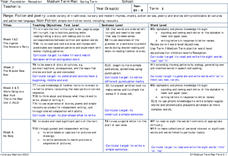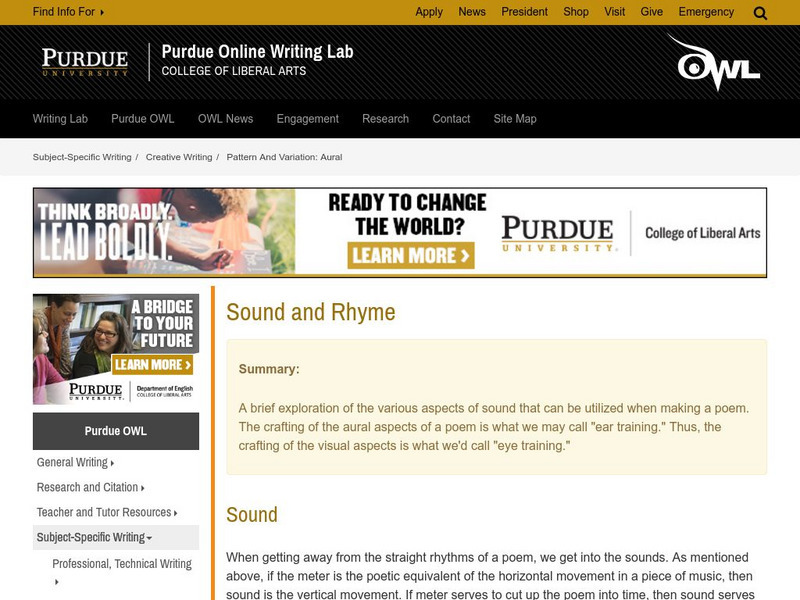Curated OER
Teddy Bear, Teddy Bear
Students identify and use patterns in oral and written language, as well as in sounds, physical movements, and concrete objects.
Curated OER
Rhyming Words
In this rhyming words worksheet, 4th graders complete activities such as circling rhyming words, writing rhyming words, and more. Students complete 6 activities.
Curated OER
Fiction and Poetry
Students explore fictional text and poetry. They explore the story structures used in the types of texts and examine the language patterns used. Students practice tracking text in the correct manner.
Curated OER
An Irritiating Creature - a poetry lesson
Students think about and evaluate the meaning of a poem. It also encourages students to be original and creative in their thinking as they read, analyze and illustrate their story.
Curated OER
Cool School Poetry
Students generate a word bank drawing on vocabulary from fifteen school related topics. They use the word bank to write poetry in the styles of Shel Silverstein and Jack Prelutsky.
Curated OER
Are You Money Smart?
Learners figure out and discuss the irony of this coin-centric poem. They also practice persuasive letter writing, and identify and count coin/money values.
Utah Education Network
Uen: Rhythm and Rhyming
This lesson engages students in the shared learning of different poems of the month. Students will clap different rhythms and then apply clapping patterns to different poems of the month. Each poem will contain different rhythms and...
Arizona State University
Alberto Rios, Arizona State U.: Glossary of Rhymes
This is a very extensive list of rhymes that "Occur frequently in discussions of poetry and critical writing, but not with absolute consistency." All have definitions, and many have examples. They are organized into five categories:...
ReadWriteThink
Read Write Think: Developing Phonemic Awareness
This online lesson stresses the importance of emergent readers' understanding of rhyming patterns in language. Through this, students will learn and apply the concepts of rhyme through exercises and interactive activities. A great...
Online Writing Lab at Purdue University
Purdue University Owl: Sound & Rhyme
This lesson discusses the use of sound in poetry, mainly focusing on the use of rhyme. Various kinds of rhyme are defined (rhyme scheme, perfect rhyme, forced rhyme, slant rhyme, masculine rhyme, feminine rhyme, visual rhyme, and...
ClassFlow
Class Flow: Learning About Limericks
[Free Registration/Login Required] This flipchart teaches the poetry form of a limerick. Students determine the characteristics by analyzing sample limericks for rhyming pattern, line length and stressed syllables. As assessment,...
Scholastic
Scholastic: I Spy
These interactive matching games for elementary age students combine visuals of familiar objects and rhyming riddles to create brain-teasing puzzles.
Other popular searches
- Spelling Patterns Rhyming
- Rhyming Patterns in Poetry
- Rhyming Patterns Poems
- Poetry Rhyming Patterns
- Poetry Rhyming Patterns
- Rhyming Patterns Tests
- Rhyming Patterns Ab Ab
- Free Rhyming Patterns
- Rhyming Patterns Abab
- Rhyming Patterns Ace
- Poetry Rhyming Patterns Aabb
- Rhyming Patterns A/b













